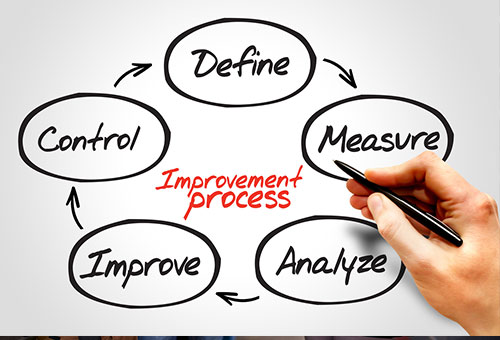CLASSES
Take a class at Fox Valley Tech for fun, personal enrichment or career development. Find classes in any location during any time of the day. We have hundreds of classes to fit your budget, schedule and learning style.
CATEGORIES
Sorry, no results were found. Please check back later.
Optimize your materials management supply chain and impact your bottom line results. These services are designed to develop employee, supplier and customer potential, enabling all to be high performers in a global marketplace.
Explores ethical considerations and sustainability issues across business areas such as human resources, accounting and marketing. Examines the differences between legal and ethical decision making.
Develops skills to prepare, support, and facilitate effective business presentations. Students develop skills to present themselves and design powerful in-person and virtual presentations.
Learn how Lean, Six Sigma and many other process improvement strategies help businesses provide exceptional customer service by delivering the products and services customers want in a timely and efficient manner.
Covers human resources planning and processes. Topics include human resource development, employee selection, performance appraisals, compensation, training, labor relations, motivation, teamwork and introduces employment related laws.
The four-module series builds the leadership skills of the informal leader in every organization. Frontline employees gain the confidence and skills to take charge of their work area and lead their coworkers. Learn best practices and collaborate on new peer leadership approaches with the ability to apply those new skills in the workplace.
Covers the supervisor's role in leadership effectiveness. Topics include theories of leadership, development and implementation of teams, impact of leadership style, philosophy of corporate culture and leadership in the global marketplace.
Unlike a one-size-fits-all leadership series, this four-part series delivers personalized learning and one-on-one coaching that focuses on key areas critical to a leader's success and participants. Participants work with a trained coach to develop a personal action plan using 360-degree feedback and applied development goals.
Lays the foundation for students to gain experience using QuickBooks Pro. Students practice creating a company using a chart of accounts, creating vendors and customers, demo payroll, record transactions, and generate and use financial reports. Being familiar with Windows, business experience or completion of an accounting course is helpful. Upon completion of this course, students are eligible to take the QuickBooks Certification exam.
Introduces and teaches the skills used by sales and marketing professionals to succeed in their careers. It includes concepts relating to customer relationship development, creating valuable business solutions, and professional sales behaviors. Explores written, verbal, and nonverbal communication best practices. Introduces the sales process and how it can be used to promote ideas in the work place.










